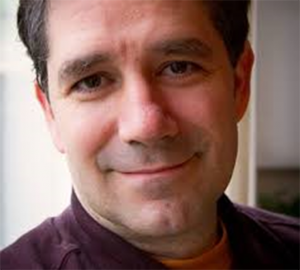Presented By: Science, Technology and Society
STS Speaker. Unbalancing the Senses and Sciences of Moving Fascia: Practicing Research
Joseph Dumit, University of California-Davis

Inside of the norming power of "balance" as a concept, lies the layering of balance as a moving-idea of ideal-movement. How "we" learn and incorporate the concept-practice of balancing gives shape to our lifeworld in political, historical, gymnastic and practical ways. Even the figuring of our "sense" of balance within and without "the five senses" is consequential for the shaping of ability and disability. Take this simple example: one hand touches another and each feels the skin, and under the skin, of each hand. One hand touches another and both change in skin and under the skin. The many senses—of touching, feeling, tactility, thermal, mechanical, and kinesthetic impressions, proprioceptive movement, weight and balance of self and others, affective pleasures, pain, distention, tickling, itching, tension and tone, anticipation and inspection—are in flux, social and cultural, yet trainable, extendable, transformable. Each nameable variable of the experience seems to matter and feedback into the experiment: pressure, weight, angle, movement, direction, depth of feel, intent, relaxation, length of time, sensitivity, attention. These “senses” complicate the world -- defined by Stengers with Whitehead as that which our senses testify to and raise questions about experimental ethical relations. At a more practical level among those who start thinking conceptually with training, the effect of ideas about body and movement on the practice of moving has been critically examined as "ideokinesis" by Mabel Todd in her 1930s Posture Lab – in which students became taller in a semester of imaginative exercises, since taken up into the training of dancers. Bourdieu describes this loop of habitus as: history turned into nature. Csordas describes perception itself "in the midst of arbitrariness and indeterminacy". Anatomy itself is also put into variation as different groups insist, discover and practice alternate claims to body “parts” such as “fascia”. Often called connective tissue (the goop or structure between muscles, organs, skin, and cells), but also found to be active, intelligent, communicative, and a sensory organ (the “interstitium”); sometimes three, sometimes many and sometimes one, liquid, solid and mucus, fascia stretches between communities of biologists, massage therapists, anatomists and pathologists, yoga and pilates teachers, doctors and dancers. Palpating these balancing practices and membranes through participant observation and interviews, experience and experiments, this work attends to the training of sensitivity and habit across fields of research and training, structures and sensibilities.
Biosketch: Joseph Dumit is chair of Performance Studies, and professor of Science & Technology Studies, and of Anthropology at University of California, Davis. His research and teaching ask how exactly we come to think, do, and speak the way we do about ourselves and our world; and what are the material ways we encounter facts and things, and take them to be relevant to our lives and our futures? He is the author of Picturing Personhood: Brain Scans & Biomedical America (Princeton 2004), Drugs for Life: How Pharmaceutical Companies Define Our Health (Duke 2012), and co-editor of Cyborgs & Citadels: Cyborg Babies and Biomedicine as Culture. His current research includes comparative anatomies and the study of fascia via movement and improvisation, capitalism and health, three-dimensional visualization (virtual reality) environments for science, and game studies. He is developing a game on fracking at http://modlab.ucdavis.edu, a book on playing with methods, and is in the process of creating an undergraduate program in Data Studies, which will help undergrads learn to think critically and computationally about data. http://dumit.net
Biosketch: Joseph Dumit is chair of Performance Studies, and professor of Science & Technology Studies, and of Anthropology at University of California, Davis. His research and teaching ask how exactly we come to think, do, and speak the way we do about ourselves and our world; and what are the material ways we encounter facts and things, and take them to be relevant to our lives and our futures? He is the author of Picturing Personhood: Brain Scans & Biomedical America (Princeton 2004), Drugs for Life: How Pharmaceutical Companies Define Our Health (Duke 2012), and co-editor of Cyborgs & Citadels: Cyborg Babies and Biomedicine as Culture. His current research includes comparative anatomies and the study of fascia via movement and improvisation, capitalism and health, three-dimensional visualization (virtual reality) environments for science, and game studies. He is developing a game on fracking at http://modlab.ucdavis.edu, a book on playing with methods, and is in the process of creating an undergraduate program in Data Studies, which will help undergrads learn to think critically and computationally about data. http://dumit.net